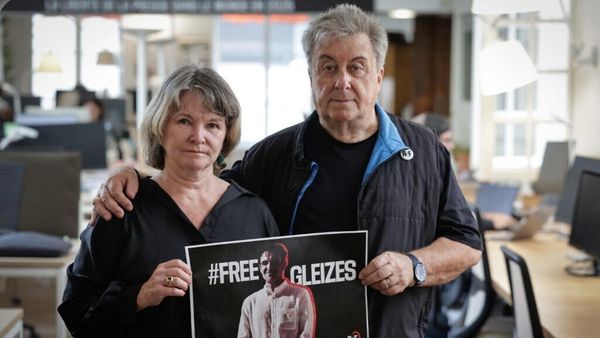This year’s John Lewis Christmas advert features a foster father attempting to master a skateboard to connect with an incoming foster child. It is warm, fuzzy and well-meaning. The company intends to take on care-leavers in apprenticeships and support them in education. Bravo, John Lewis! But, and I’m sorry for playing Scrooge here, it’s demoralising that one of the nation’s largest retailers is doing the government’s job for it.
A massive company such as John Lewis dedicating its Christmas advert – one of the hallmarks of the festive season – to kids in care is more than welcome. To be clear, I’m not having a go at charities, charity workers or volunteers. As well as shining a light on different kinds of families, the advert might even galvanise people to put pressure on the government to act. Unfortunately, however, the last 12 years of austerity have proved that charity is no solution to a shrinking state.
“Charity is a cold, grey, loveless thing. If a rich man wants to help the poor, he should pay his taxes gladly, not dole out money at whim.” These words spoken by the former prime minister Clement Attlee are as relevant today as they were when he wrote them almost 100 years ago. One of the reasons that charities are ponying up cash for kids in care is that the government has vitiated local services and handed the fragments to the private sector, which runs threadbare services at exorbitant prices. The largest private providers of children’s homes are charging councils an average of £3,830 a week per child and pocketing an average 23% of that as profit. Let that figure sink in as you read your bills this winter.
This country has transformed children in care into commodities in a misery market. Then they discard them when they’re too old – usually at 16 to semi-independent accommodation, or as a 2019 report conducted by the all-party parliamentary group for runaway and missing children and adults put it, into a “frightening, twilight world of unregulated semi-independent homes”. The report stated that young people living in this accommodation were easy targets for sexual exploitation and drug-running. So, it shouldn’t be a surprise that approximately 25% of the prison and homeless population have spent time in the “care” system.
It seems that providing charity to children in care, much like giving to the homeless, will become another perennial issue that we devote more compassion to at Christmas. The same thing has played out with homelessness every winter: suddenly, the issue rises to the top of the agenda. Appeals are made, funds are raised, and people are taken off the streets. Then the emergency passes, the temperature rises and people no longer seem to care.
No one talks about the “big society”, David Cameron’s 2010 election campaign centrepiece, any more, but that is the society we have now. The idea sold by Cameron’s Tories was that we would create a community of volunteers to lift poor people, and trickle-down economics would do the rest. That hasn’t worked out, and now department stores are rattling collection tins for kids in care.
Unfortunately, like every other significant social issue, solving it will require much more than your donations and goodwill. It will entail a seismic shift in the way we do politics and economics. Giving up on philanthro-capitalism is an excellent place to start. Social infrastructure has no place in the market; if we want to see better outcomes for care kids, then we have to return children’s services to local councils.
Then we’d invest in social services with an emphasis on early intervention and proper training for care workers, and pay them for the true value of their work. Finally, pledge to provide support to care-leavers for as long as they need it, irrespective of their age, so they don’t just drop off the map. John Lewis has done a great thing. No 10: now it’s your turn.
Daniel Lavelle writes on mental health, homelessness and social care







